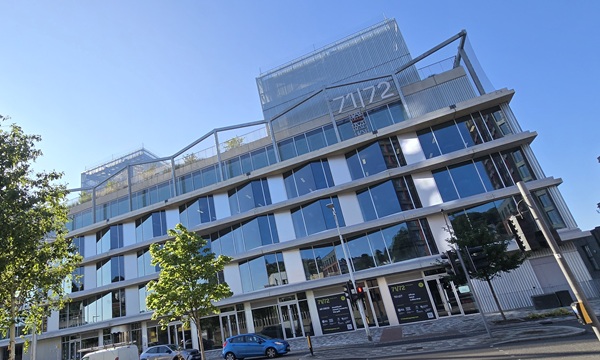 Written By:
Written By:
Vaughan Gething MS
Minister for the Economy
Welsh Government
The steel industry has a long and proud history in Wales. I am committed to working to secure a long, proud and sustainable future for our steel industry.
Not only does the sector support many thousands of jobs in Wales but steel enables everything from our buildings, transport, utilities and communication systems, to many of our consumer products.
Developing a sustainable and low carbon steel sector is a hugely important foundation for our manufacturing and construction industries. The importance of our steel sector is more not less important following our departure from the European Union.
Since becoming Minister for the Economy I have undertaken a number of engagements with the sector. Indeed, one of my first engagements was attendance at the UK Steel Council on 19 May.
It is very clear to me was that the sector continues to face both immediate and longer term challenges. However we have the opportunity to collectively work towards a more sustainable future.
All parties I have met place critical importance on the transition to low carbon steel making. There is a recognition from business leaders and trade unions that we need to reduce carbon emissions in order to meet our collective climate change ambitions.
Within Wales we have committed to achieve a transition to net zero emissions by 2050. Industry accounted for 36% of total Welsh greenhouse gas emissions in 2018. Of this, the iron and steel sectors represented 43% of industry’s total emissions in 2018.
The low carbon transition is complex and far-reaching. It requires collaboration across governments, industry and the workforce over the coming decade and beyond. In the short term, some improvements can be made; improving energy efficiency and resource efficiency for example.
However, the significant reductions in emissions required can only come from major shifts in production processes and consideration of the potential for new technologies such as carbon capture storage, fuel switching to electricity and longer term to hydrogen.
The appropriate low carbon pathway and mix of technologies for our steel producing companies is being considered by employers, trade unions and governments. Whichever path is taken will require major investment within individual production plants and in wider energy production and infrastructure.
One of the greatest challenges to reaching net zero across the economy is the change needed to electricity supply.
The Climate Change Committee has advised us that we need to reach near zero greenhouse gas emissions from electricity by 2035. At the same time various projections suggest electrification of transport, buildings and industry mean electricity demand in Wales will more than double by 2050. Decisions taken by the steel industry on its decarbonisation pathways will have a huge impact on our electricity needs.
Our pathway to a net zero Wales will be challenging, but it will offer opportunities for sustainable growth and more resilient businesses.
We live in a world where economies are prioritising decarbonisation. By taking a more efficient approach in how we use resources, we can shorten supply chains and boost economic resilience.
Producing the lower carbon products that we need means that more economic value can be retained here in the Welsh economy. For example, we have invested a billion pounds in recycling infrastructure which collects materials including steel from every home in Wales.
We are also bringing forward requirements on businesses to separate their recycling that will also support the supply of recycled steel for re-use.
This is a challenge that the steel sector cannot meet in isolation. Industry as a whole has come together through the South Wales Industrial Cluster and has been awarded funding through the UK Industrial Decarbonisation Challenge. We are working closely with those industries on their holistic approach to the transformation of industry for a net zero future.
Developments are accelerating in the potential for hydrogen infrastructure to be deployed across Wales and in particular North Wales. This includes cross border engagement with Hynet in Ellesmere Port, who are developing a Hydrogen (H2)/Carbon Capture Storage integrated network in North West England/North East Wales.
To provide the low carbon energy we need we are also committed to looking at opportunities to develop marine renewable energy and supporting innovation in new renewable energy technologies, including a Tidal Lagoon Challenge.
We are working closely across the offshore renewable energy sector, particularly offshore wind and marine energy. There are already over 4GW of fixed offshore wind in planning or development off the North Wales coast. These projects are likely to be developed by the early 2030’s.
Whilst this is significant, in the short term it is not enough to unlock the required infrastructure investment. This requires the support of the UK Government with the development of a market pipeline in tandem with associated financial tools and enforcement of the 60% UK content rule to underpin local delivery of value added goods and services.
I was pleased to hear a firm commitment from the UK Government BEIS department at the Steel Council on 19 May to support the sector with its key challenges, including energy prices and decarbonisation.
The UK Government holds many of the powers related to industry decarbonisation including the business models for developing hydrogen, carbon capture storage, the cost of electricity and key market drivers such as a potential carbon border adjustment mechanisms. We will continue to do all we can to work with them and the trade unions to ensure our steel companies in Wales remain as competitive as possible.
We will continue to work with them and the trade unions to ensure our steel industry is modern, competitive and fit for the future. The talented workforce we have in Wales drives the success of the UK steel industry and we will work in partnership to pave the way for a fair transition.
Llywydd, with much progress to make and with so much at stake, we need to see early action from the UK government. The next meeting of the UK Steel Council, this year’s Comprehensive Spending Review and COP 26 now represent key tests for the UK Government and their practical commitment to the sector.
I was also pleased with the UK Government’s decision last week to make new regulations to defend the UK steel industry with the temporary extension on steel safeguard measures. The initial decision from the Department for International Trade seemed to me to be at odds with the direction and support given by the Secretray of State for BEIS.
I welcome the change of heart and reversal at the Department for International Trade to ensure that safeguard measures remain in place as they do within the EU. That should help to avoid steel dumping into the UK.
Since becoming Wales’ Economy Minister, I have made it clear to the UK Government that extending existing steel safeguards was absolutely vital in order to protect the UK’s steel industry.
The solutions to many of the challenges facing the steel sector are complex and will be transformational.
I will continue to champion the sector and I look forward to working collectively with the industry, the workforce and the UK Government on the transformational technologies, infrastructure and market drivers that will underpin the operation of the sector and all our businesses to meet our longer term net zero aspirations.







